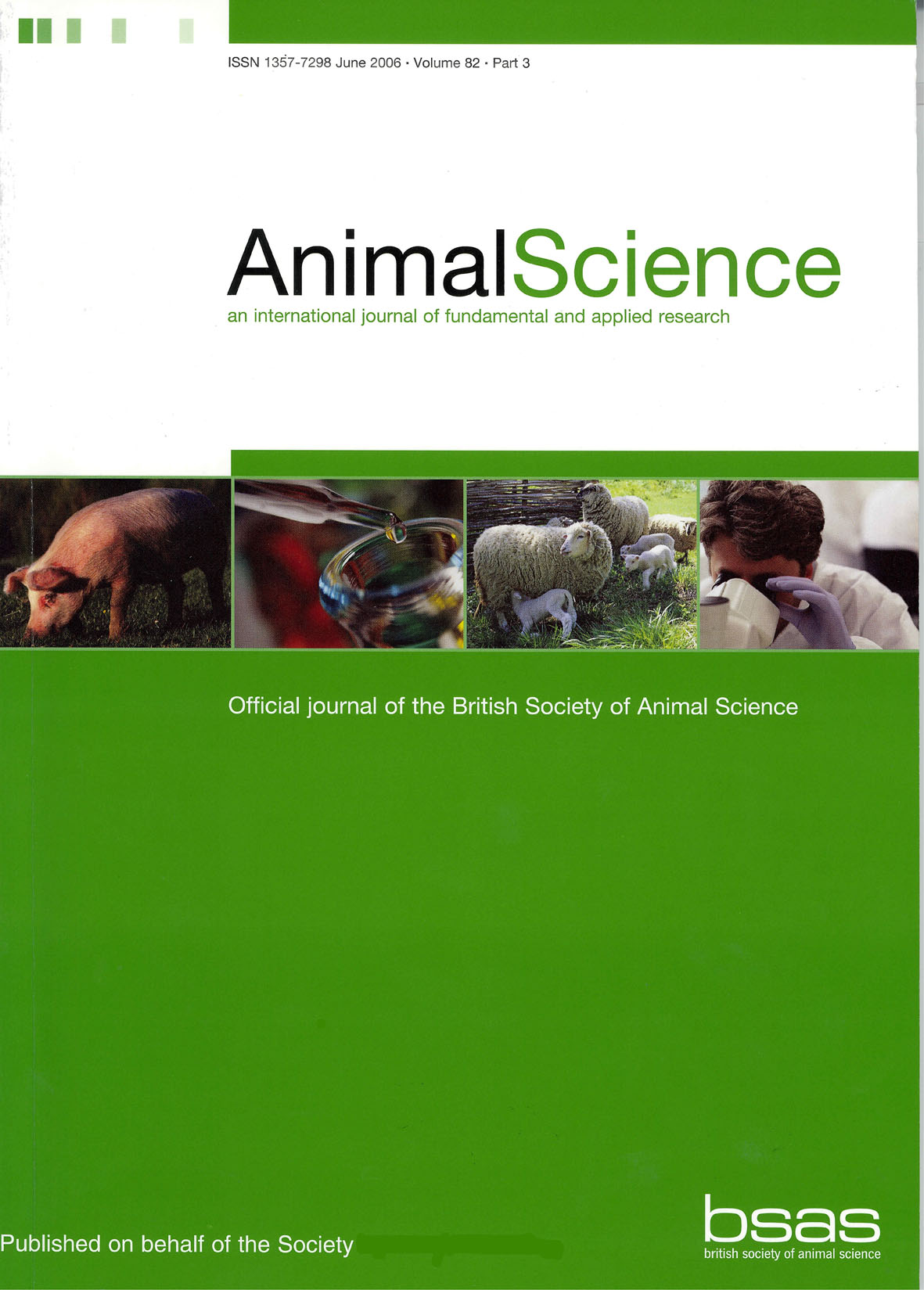Article contents
Genetic associations for pathogen-specific clinical mastitis and patterns of peaks in somatic cell count
Published online by Cambridge University Press: 18 August 2016
Abstract
Genetic associations were estimated between pathogen-specific cases of clinical mastitis (CM), lactational average somatic cell score (LACSCS), and patterns of peaks in somatic cell count (SCC) which were based on deviations from the typical lactation curve for SCC. The dataset contained test-day records on SCC in 94 781 lactations of 25 416 cows of different parities. Out of these 94 781 lactations, 41 828 lactations had recordings on occurrence of pathogen-specific CM and on SCC, and 52 953 lactations had recordings on SCC only. A total of 5 324 lactations with cases of CM were recorded. Analysed pathogens were Staphylococcus aureus, coagulase negative staphylococci, Escherichia coli, Streptococcus dysgalactiae, Streptococcus uberis, and culture-negative samples. Pattern definitions were based on three or five consecutive test-day recordings of SCC. They differentiated between short or longer periods of increased SCC, and also between lactations with and without recovery. Occurrence of pathogen-specific CM and presence of patterns of peaks in SCC were both scored as binary traits. Variance components for sire, maternal grandsire, and permanent animal effects were estimated using AS-REML. The estimated heritability for overall CM was 0·04, and similar heritabilities for pathogen-specific CM were estimated. Heritabilities for the patterns of peaks in SCC ranged from 0·01 to 0·06. Heritabilities for LACSCS were 0·07 to 0·08. Genetic correlations with patterns of peaks in SCC differed for each pathogen. Generally, genetic correlations between pathogen-specific CM and patterns of peaks in SCC were stronger than the correlations with LACSCS. This suggests that genetic selection purely on diminishing presence of peaks in SCC would decrease the incidence of pathogen-specific CM more effectively than selecting purely on lower LACSCS.
Information
- Type
- Breeding and genetics
- Information
- Copyright
- Copyright © British Society of Animal Science 2003
References
- 13
- Cited by

